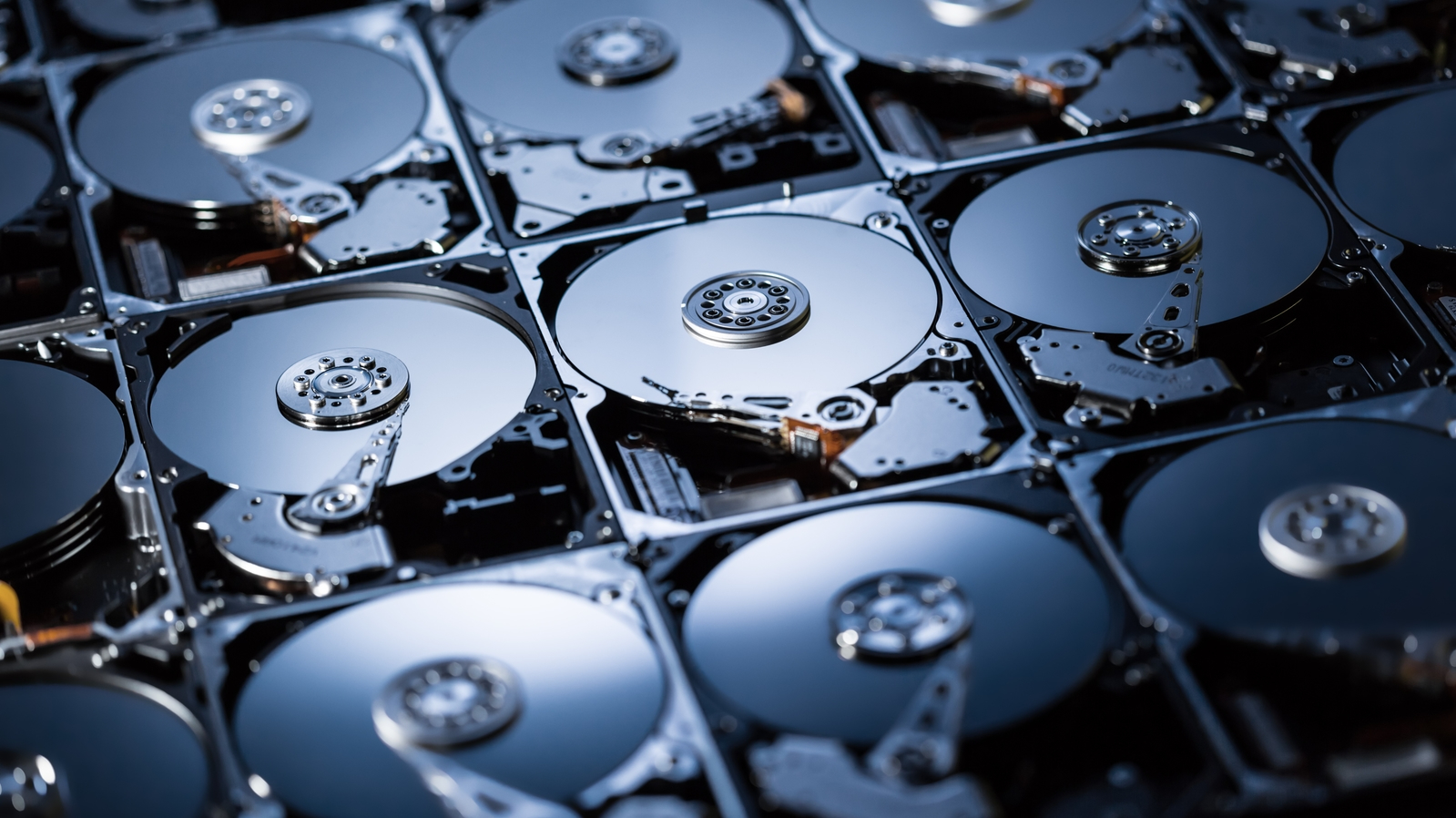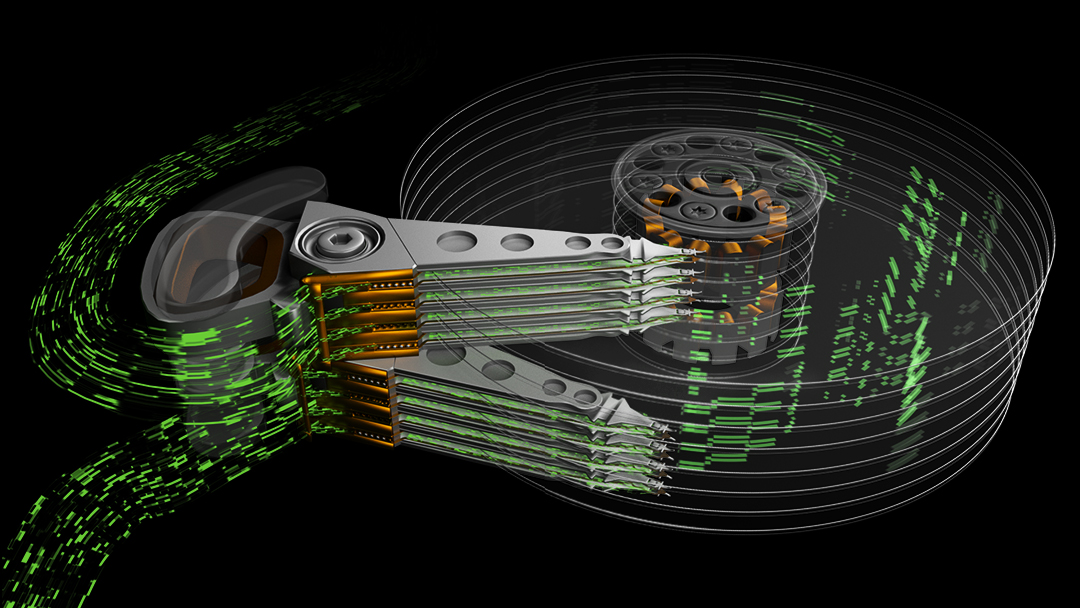Toshiba exec claims hard drives are 7X cheaper than SSDs and will continually evolve for large datacenters
His statement directly counters predictions that hard drives will die in five years

According to a report from Blocks and Files, Toshiba HDD Business Development Senior Manager Rainer Kaese believes hard drives will be sticking around for a while and won't go the way of the Dodo as some predictions have suggested. The Toshiba exec made a lengthy statement explaining that hard drives will continue to be much cheaper than SSDs in the long term, and datacenter engineers will develop more efficient drives in the future to meet stricter power requirements.
Here are just some of the bits Rainer Kases said:
"HDDs maintain a gap in cost per capacity with flash storage of around a factor of seven. This advantage remains the lifeline of the HDD … HDDs may reach 40 or even 50 terabytes without approaching comparable costs with flash storage."
"This market driver is a certainty. Even if HDDs reached as high as 100 terabytes of capacity, our data-driven society means we would fill it in no time at all." Air-filled drives need about 10 watts to spin while helium-filled ones need 7-8 watts. He reckons "datacenter engineers are thinking about how to use the HDD in a more power-optimised way, possibly through idle or power-down modes."
"The first wave of HDD deployments in data centres for the cloud took place six or seven years ago, and those components are now coming to the end of their lifecycle and are being decommissioned. HDDs are comprised of aluminium and copper, making them much easier to recycle than other components and materials such as PCBs, chips, and plastics. Consequently, we expect HDDs to become an integral part of the circular economy based on services such as recycling and reuse."
His statements directly counter predictions made by Shawn Rosemarin from Pure Storage, who predicted that hard drives will go extinct as soon as 2028. Rosemarin's assumptions lie particularly in power consumption, with rising electricity costs being the primary expected source for the upcoming "extinction."
Both predictions have merit, but Rainer Kaese's statement on cost per gigabyte is somewhat misleading. The cost of SSDs most SSDs today is nowhere near the "7X" multiplier Kaese suggested. Most SSD prices currently are around three to four times more expensive than hard drives, and even less if you bought one of the Best SSDs recently from the previous Black Friday/Cyber Monday craze. It's possible that some enterprise-grade SSDs cost seven times as much as their hard drive counterparts, but that is not the norm.
Get Tom's Hardware's best news and in-depth reviews, straight to your inbox.

Still, Kaese belief in ongoing drive development is a legitimate assumption. Hard drive technology has improved drastically since the inception of SSDs, enabling modern 3.5-inch form factor HDDs to hold storage capacities that would have blown people's minds a decade ago. As far as we can tell, nothing is stopping hard drives from becoming more advanced and capable as long as manufacturers invest R&D dollars. For example, Seagate's latest HAMR technology enables 22TB capacities to be stored in a single 3.5-inch hard drive.
We'll have to wait and see which prediction comes true in 2028. The underlying problem from both predictions comes down to power consumption and energy cost, so if hard drives are to succeed, manufacturers will need to figure out a way to lower the energy consumption of hard drives to compete with SSDs.

Aaron Klotz is a contributing writer for Tom’s Hardware, covering news related to computer hardware such as CPUs, and graphics cards.
-
USAFRet Cheaper per GB, sure.Reply
In data centers? Sure.
Even in the 100TB in my NAS? Sure.
For home and workstation use? Not a chance. -
hotaru251 HDD's in data center has a limit.Reply
A drive can only get so large with current tech limitations before a failure results in data loss risk due to having so much data its physically impossible to copy the data to a new drive within the time frame.
and ssd have a lower power consumption & heat (benefit of no moving parts) output (which data centers spend a lot to dissipate) and thats ignoring the reliability of ssd over mechanical drives.
now will hdd actually dieout? probably not however they will become more and more rare for sure. -
bit_user ReplyThe cost of SSDs most SSDs today is nowhere near the "7X" multiplier Kaese suggested.
Then again, NAND-makers and SSD companies were losing money, in 2023. Such pricing is unsustainable, invalidating any long-term predictions based on it. I saw one prediction that SSD prices will rise up to 55%, in 2024.
We'll have to wait and see which prediction comes true in 2028.
Both predictions are from industry players with a vested interest in their respective outcome. If you want a good prediction, look to an independent market analyst. -
George³ Before almost 6.5 years:Reply
Dude, where is my 100TB hard drive?The only thing that is certain is that HDDs have fallen far behind in capacity advancements compared to past promises and development plans. -
thestryker HDDs also have an advantage in power consumption/GB when talking about always on for higher capacities.Reply
I mostly just hope that the shifting market doesn't make it a lot more expensive to get drives for local storage as a regular customer. -
FoxtrotMichael-1 This is an analysis of datacenter storage, not consumer storage. From that perspective data costs for SSD are absolutely 7x the cost of HDD because Enterprise SSDs are absolutely bonkers in cost due to overprovisioning. If you look at your average consumer NVMe drive they aren’t rated in terms of TBW while Enterprise drives are. Even a relatively small enterprise SSD is well over $1000. HDDs will continue to have a place in the datacenter for years to come, if anything due to the need for data tiers of different speed and cost.Reply -
Giroro "HDDs maintain a gap in cost per capacity with flash storage of around a factor of seven. "Reply
Its reassuring he never actually said anything as grammatically confused as "7x cheaper". This implies he knows that multiplying by 7 makes numbers bigger, and how to talk about numbers in general. -
SethNW I would say it is half/half, like HDD will likely die for home use, with exception of long term local storage maybe. But for business use, they will keep using them. They won't just switch all storage to more expensive SSDs. Since per GB, HDD will be cheaper and not everything needs speed and snappiness of SSDs. And of course the better be cheaper, as they are lower in performance. Nevertheless regular users wise, as internal storage, HDD will die. Even games started to take advantage of SSD.Reply -
das_stig HDD's have years of life left in them for Enterprise, in the hybrid config of hot data on SSDs and cold data on HDDs, will provide the best cost/performance benefits.Reply -
hotaru251 Reply
i'd find that questionable.thestryker said:HDDs also have an advantage in power consumption/GB when talking about always on for higher capacities.
HDD by deisgn have a higher power draw as they are mechanical in nature. (it takes energy to physically move soemthing)
i'd be interested in seeing em compared.
largest ssd i think is like 100TB vs 20TB for hdd. (but they are crazy expensive)